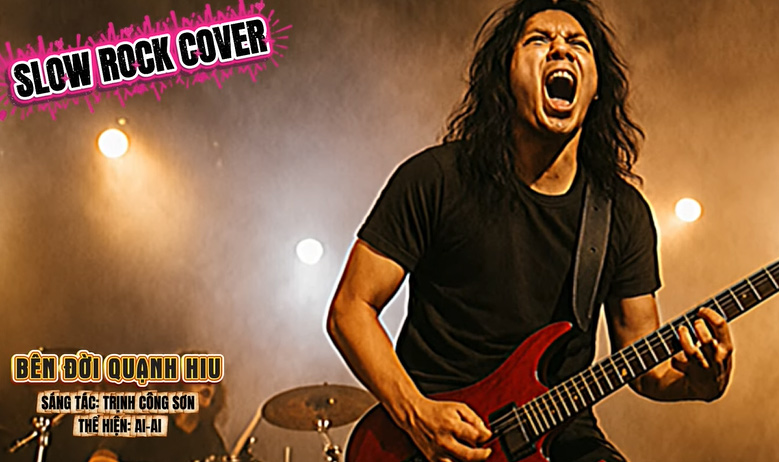In recent days, social networks have been flooded with "AI singing voice" videos performing the song of the late musician Trinh Cong Son in a completely new style. The rock covers of "Diem Xua", "Ha Trang" ... spread at a dizzying speed, attracting hundreds of thousands, even millions of views in just a few weeks.
Or the song "Gan thuy pho pho thu" composed by the late musician Nguyen Vu was sung by AI. The version of Mua thuy by the late musician Anh Bang sung by AI in the style of Rock Meta also created a fever on social networks.
This is just the beginning of the " banners of sinking" when hundreds of AI voice covers simulate famous singers, AI sings songs that have gone through the years.
However, behind this bustling wave is a complex copyright story. Using AI to transform voices, mix and match, and even create a completely new singing voice is becoming a shortcut to avoid copyright fees, especially on the YouTube platform, where each million-view clip can bring in huge profits. For each CPM (1,000 views), YouTube will pay you $0.5-1.2 USD.
Without permission, without sharing profits, without taking copyright responsibility, this is the "success formula" of many anonymous AI music channels.

Sharing with Lao Dong reporter, musician Dong Thien Duc - author of many famous songs such as "Who is in love and can be together forever", " motre, someone gets married", "Khoa lyric" ... gave his opinion: "Regarding the copyright issue, I think now there is only one way to ask units such as the copyright Department or copyright protection centers to get involved and handle it thoroughly. Only when they "claim" (copyright sticks) to the point of being there will they know who is behind those AI music.
Currently, individuals and groups making AI music are often anonymous. And the number of views of AI videos is very high. Just one clip that reached about one million views could have earned more than twenty million VND, while they absolutely did not have to share the profit or ask for permission from anyone.
Therefore, I just hope that copyright management units will be more thorough during this period. Currently, there are many AI tools to track copyright, so I have to apply them. They apply AI to circumvent the law, but we use AI to monitor and trace.
Meanwhile, singer Trinh Vinh Trinh - the younger sister of musician Trinh Cong Son - shared with Lao Dong reporter about AI singing Trinh's music in Rock style.
She said: I find many AI versions very good. But I also have concerns, because I find it so good, when AI sings Trinh's music in rock style, the way he expresses and performs the song is also very good and touches my heart. I am also concerned about how it will affect the development and creativity of real singers. As for AI technology, I am not well-versed.
When asked about the copyright issue of Trinh Cong Son's music songs performed by AI, singer Trinh Vinh Trinh said that the copyright issue will be handled by the center, because his family is not in charge of this field.
It can be seen that AI is not within the scope of regulations in the current Intellectual Property Law. The "AI singing", "AI arranging" or voice simulation does not have specific management regulations.
The platforms also do not have a mechanism to scan - identify - lock content of "impersonating AI music". This creates space for users to exploit.
The Center for copyright Protection and the copyright Department have not yet had a framework for handling "artificial voices".
The audience in general is attracted by the "strange" and "arresting" arrangements of AI, especially when they are familiar songs recreated in a completely new style. Therefore, AI covers are often more likely to surpass the original in terms of views due to listeners' initial curiosity. This disturbs the current music market, while also risking the loss of true creative value.
Regarding copyright issues, it is necessary to soon build a legal framework for AI-generated content, while requiring platforms to deploy stronger copyright scanning technology.











